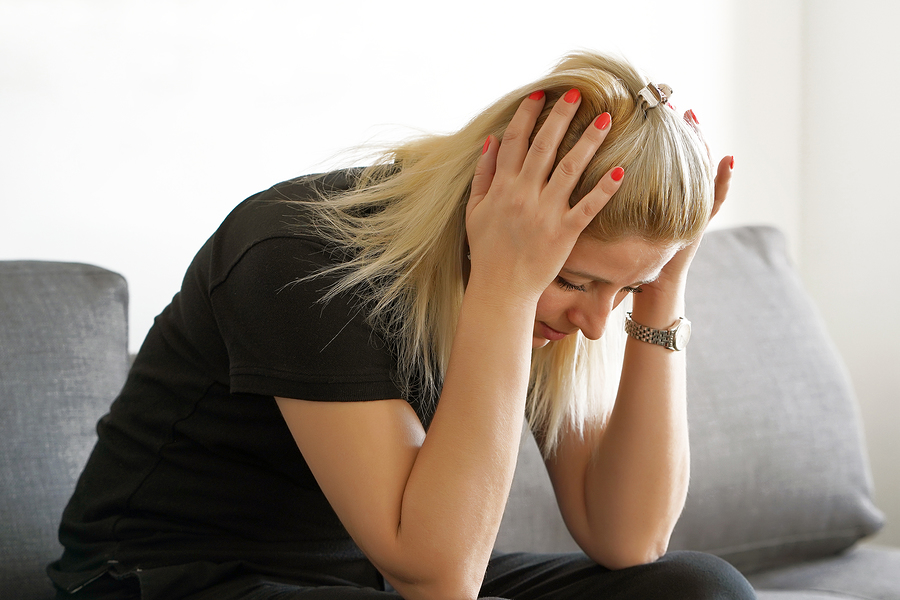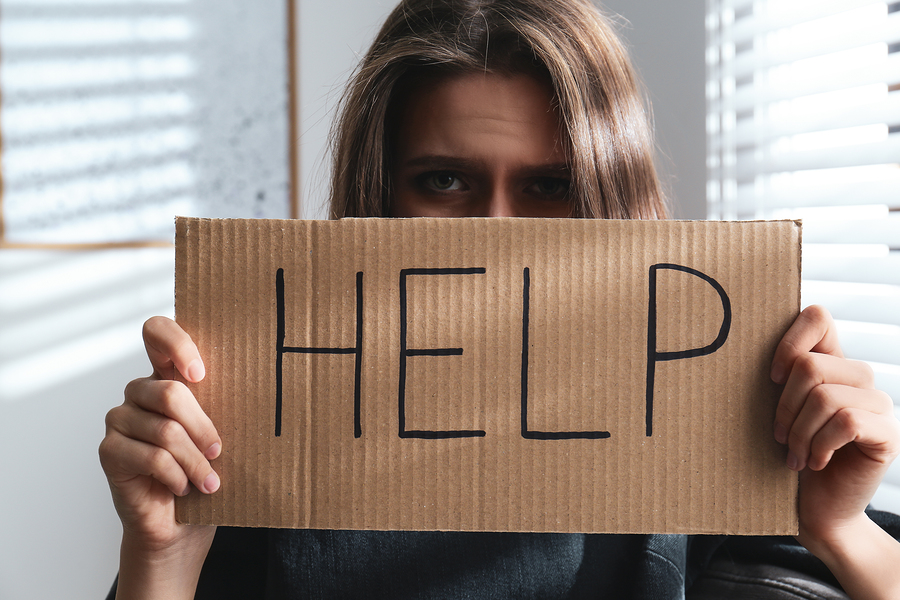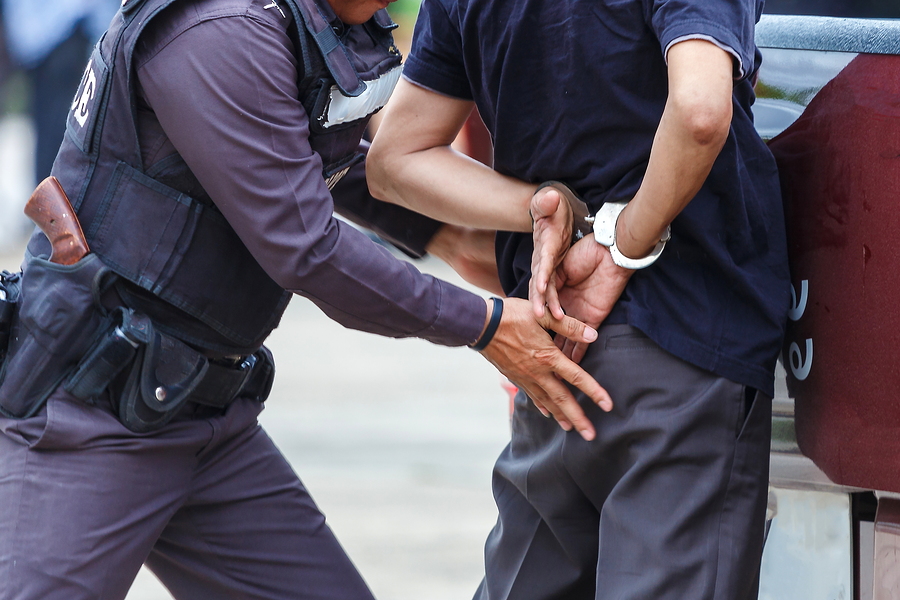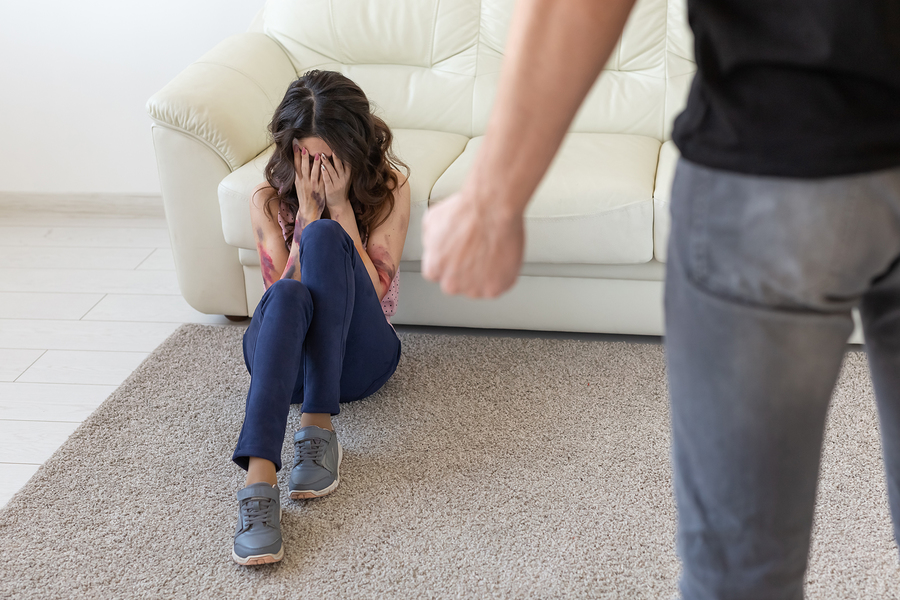Awareness, compassion and understanding are so important when dealing with cases of domestic violence in the home. It is crucial to understand that domestic and family-related violence aren’t just a private concern.
Indeed, cases of domestic violence can demonstrably affect a person’s entire life, which extends into their professional and social engagements.
Because of this, law enforcement, government officials, family members and employers need to be aware of the signs of domestic violence, including its effects and the procedures that need to be put into place to ensure that those affected by domestic violence are well supported.
What is domestic violence?
Domestic violence, also known as family violence, occurs when someone close to you (i.e. a direct family member) makes you feel scared, unsafe and fearful. Whilst it is commonly physical in nature, domestic violence can be psychological and emotional.
Your cultural background, social status, age or gender are incidental when it comes to domestic violence. It is a form of abuse that does not discriminate, affecting people across age, cultural, community and sex. It is crucial that you do not blame yourself if you are experiencing some form of domestic abuse. It is not your fault.

Forms of domestic violence
As outlined prior, domestic violence can take many different forms. It can be physical in nature, like direct physical harm, smashing things or even hurting pets. It can be financial abuse, like your spouse or partner having strict control over your finances and spending power (an unfair amount of control).
Name calling or yelling (e.g. verbal abuse) is a form of domestic abuse. Making you feel humiliated or worthless is a common form of domestic abuse. Usually this comes in the form of putdowns or continual blame for actions beyond your control.
If a member of your family, spouse or close friend has dominant control over where you go and who you socialise with, this too is a form of domestic abuse. Often, this is accompanied with elements of stalking, like following you or excessively calling or texting you to verify your location.
What should I do if I am experiencing domestic violence?
If you are experiencing some form of domestic violence, it is very important that you seek support or follow specific guidelines for your own safety. As a first step, make sure you reach out to someone close to you (someone you trust). It could be a close friend or family relative – either way, they need to be someone that you trust wholeheartedly.
It’s important that you recognise the signs of a relationship becoming abusive and not simply let it evolve into becoming the norm for your life. The rates of domestic abuse in Australia are quite alarming, so it is important to be aware of subtle indicators reflective of abusive relationships. Indeed, if you find yourself becoming anxious or nervous around your partner or perpetually afraid that you won’t be able to please them, then there is a good chance you are going through emotional abuse. Furthermore, if you have noticed that you are slowly become more detached and isolated from your friends and family, this can be interpreted as another sign of domestic violence.
If you are concerned for your safety and welfare, you need to put distance between you and your abuser. If you are unable to leave because your abuser is refusing to let you, then it is important that you have emergency contact details designed to help with these situations (see the next section).

Who do I need to contact with domestic violence issues?
If you are in an abusive situation or have been experiencing some form (or several forms) of domestic abuse, there are people and organisations that you can contact to support you through these incredibly difficult times. The following are points of contact and support that you should consider:
A support group
Support groups can be very effective and nurturing for people who have been through highly traumatic experiences. Discussing your experiences with other people who can properly relate, empathise and understand your plight can be very therapeutic and uplifting. If things reach a breaking point, reach out to someone in your support group.
A psychologist
You may already have a counsellor or psychologist at this point. However, if you don’t have a counsellor or mental health professional, you should certainly reach out to one. They can provide you with mental health tips and strategies designed to help you cope and adjust to your life following domestic violence. They can help you organise time off work and apply for domestic violence leave, which includes five days of unpaid leave afforded to all employees (including part-time and casual workers).
1800 Respect National Helpline
The 1800 Respect National Helpline (Phone: 1800 737 732) is designed to help sufferers of domestic violence. Their phoneline operates 24/7 and their website also features an online chat option that also operates all day, every day.
Women’s Crisis Line
As the name suggests, the Women’s Crisis Line (Phone: 1800 811 811) specialises in providing real-time support to women suffering from domestic violence and abuse. Available to all women in Queensland, their goal is to provide women in need of immediate safety. This includes facilitating emergency transport, safe accommodation, specialist crisis counselling and safe refuge for the sufferer’s pets.
Men’s Referral Service
Driven by their mantra of ending men’s family violence, the Men’s Referral Service (1300 766 491) is available 24/7 in NSW and Tasmania. For the rest of Australia, it is available 8am to 9pm on weekdays and 9am to 5pm on weekends. They aid all sufferers of domestic violence (men, women, non-binary and children), and even provide ongoing support for men who have perpetuated violence against their family.
Lifeline
Arguably one of the most well-known crisis hotlines, Lifeline (Phone: 131 114) specialise in suicide prevention and crisis assistance. Their 24-hour crisis support services are designed to empower all Australians through compassion, understanding and connection. If you are experiencing domestic violence and feel like there is no way out, call Lifeline for support. It can and will save your life.
Aboriginal Family Domestic Violence Hotline
The Aboriginal Family Domestic Violence Hotline (Phone: 1800 019 123) is a phone line dedicated to assisting Aboriginal victims of domestic violence and abuse. They provide callers with important information about their rights, accessing financial assistance and getting reliable social support/counselling.
The police
If you believe that your life is in immediate danger, call 000 for emergency police support.

What are the effects of domestic violence?
Consistent patterns of abuse and domestic violence can have irrevocable, long-term impacts for the victims, their families and loved ones. Here are some of the most common effects of domestic violence.
The victim
For the victim, domestic violence can precipitate a variety of mental health conditions and disorders, like depression, anxiety and suicidal thoughts. Many victims often develop phobias of different things that their minds associate with their former trauma (like crowded rooms, heights or tight spaces). It can undermine their ability to build relationships and openly trust future friends or potential romantic partners.
Moreover, cases of domestic violence have been directly correlated with habitual drug and alcohol abuse. This is because some victims of domestic violence resort to drugs and alcohol to alleviate the pain or distance themselves from the emotional torment of past trauma and abuse.
The children
Patterns of domestic violence can have negative effects on the mental health and wellbeing of young children, even if they aren’t directly involved in the abuse. Some children begin to exhibit poor behaviours like aggression or low self-esteem because they are in an abusive environment at home. In fact, it is not uncommon for children suffering from domestic violence to become bullies in the school yard, as a way of coping of disassociating themselves from the trauma of their home life. Ultimately, domestic violence can directly inhibit a child’s education and social development, which could have further, long-term impacts on that child’s quality of life.
The family
Naturally, cases of domestic violence can lead to the breakdown of families and relationships. If the household conflict develops in terms of how often it occurs and its severity, social services may be required to intervene and consider alternative living arrangements. Assault cases can result in imprisonment and if the children are left with no suitable guardian, they may be placed into foster care until other arrangements can be made. Clearly, instances of domestic violence can have far-reaching consequences for not just the victim, but others directly related to the abused.

Common questions and answers
Domestic violence does not discriminate. It can affect anyone, regardless of that person’s culture, age, gender and social status. Everyone should be informed and aware of situations of domestic violence, like key signs and statistics.
Here are some common questions about domestic violence and answers to these key questions.
How often do men experience domestic violence?
There is a common misconception that only women are the victims of domestic violence. This is simply untrue. While the current literature does show that most domestic violence cases involve a man perpetrating violence against a woman, the opposite is still widely apparent. In fact, it is becoming more commonly known and understood that men can experience forms of domestic abuse from their female partners. Men in gay relationships can also face domestic abuse from male partners. Dismantling this domestic violence stigma is an important step in encouraging more men to openly talk about their mental health concerns and experiences of domestic abuse.
As a friend of someone who has been abused, what are the signs of domestic violence?
If you have a close friend or family member that has been abused in the past, then it is important that you offer emotional support and friendship when they are in need. If they are prone to getting caught up in bad relationships with abusive partners, then you should certainly be on the lookout for any signs that could be indicative of ongoing abuse. The following are common signs:
- Physical marks (scratches, cuts, bruises, swelling)
- Socially isolated or detached from friendships (cancelling social gatherings, delayed responses to texts, calls, messages)
- They appear scared or anxious of upsetting their partner when in public
- They openly tell you they are experiencing abuse
How should I support someone who has been domestically abused?
The most important thing is to not judge anything they say. Even if you believe they made a poor decision and did something wrong, you cannot judge them because it is not their fault they are being abused. Be supportive, encouraging and honest. Don’t try to solve their problems, but instead direct them to someone who can (e.g. the police, one of the phonelines listed or a psychologist). Make sure you consistently keep in touch with the person and offer your support whenever they need it.
Instances of domestic violence are often correlated with other social factors. For example, sustained periods of unemployment or pre-existing mental health problems can foster an environment that is more conducive and susceptible to domestic violence. If one parent (or both) are unemployed and suffering from mental health problems, the likelihood of domestic abuse occurring is much higher. Consequently, this is why periods of economic downturn (like a recession or economic depression) are often associated with higher rates of domestic violence, crime, common assault and robbery.
What punishments are administered to those who perpetuate domestic violence?
The severity of punishments administered to domestic abusers is predicated on several factors. If the offender injures their victim(s) or they have breached a pre-existing apprehended violence order (AVO), then they have a good chance of facing prison time. You can also seek for help from local lawyers like O’Sullivan Legal who deal with AVO.
In 2010, a study found that the most common domestic-violence related charge was “common assault.” Perpetrators found guilty of this charge often received an unsupervised bond (29.6% of cases), while a much smaller number received a prison sentence (7.2%). More serious charges, however, like assault occasioning actual bodily harm, drew a higher percentage of prison convictions (17.6%).
Conclusion
Experiences of domestic violence can be incredibly traumatic. They can have long-term effects for the victim, their family, their children and their close friends. If you are suffering from domestic violence, do not hesitate to reach out to the support groups or phonelines that were discussed earlier in this article. Likewise, if someone you know feels trapped in a brutal, abusive relationship, use some of the advice and strategies listed in this article to help that person reach a safe, loving environment.


